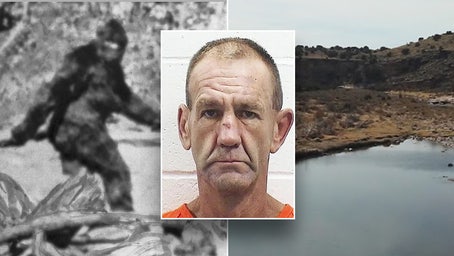A Flagstaff resident was sentenced to nearly two years in prison for setting fire to a cabin in the Grand Canyon National Park where his ex-girlfriend was staying.
An Arizona man has been sentenced to nearly two years in prison for setting fire to a cabin in the Grand Canyon National Park where his ex-girlfriend was staying.
Dahntay Dunbar, 21, of Flagstaff, was arrested in May after he broke into her locked cabin and set a fire inside, the Department of Justice said Tuesday.

Arizona Man Sentenced for Arson in Grand Canyon National Park
According to federal prosecutors, Dunbar found a bottle of clear liquor and poured it on a bed before setting fire to a shirt belonging to his former girlfriend. She was not in the cabin at the time.
"The bed started to burn, and Dunbar left the cabin," a DOJ statement said. "The fire caused scorching, burn damage, and smoke damage to the walls, ceiling, and other parts of the cabin."

Arizona Man Sentenced for Arson in Grand Canyon National Park
A bystander saw the blaze and extinguished most of the flames before firefighters arrived on the scene, according to court documents.
The cabin was owned by the resort company Xanterra. The blaze caused more than $40,000 in damage, authorities said.
Dunbar was arrested by park rangers a short time later. On July 8, he pleaded guilty to arson of a dwelling.
Days before the fire, Dunbar got into a dispute with the unnamed woman and punched through one of the windows, court documents state.
In addition to a prison sentence, he was ordered to pay $20,146.13 in restitution and is subject to five years of supervised release after he serves his time.
The incident highlights the growing problem of vandalism and damage in national parks across the United States. According to a recent report, it could take centuries to remedy the damage caused by visitors to some of these iconic landscapes.
The report, published by the National Park Service, found that vandalism and other human-caused damage has become a "major threat" to the health and integrity of national parks.
The report cites a number of examples of damage, including graffiti, trash, and illegal campfires. It also notes that the increasing number of visitors to national parks is putting a strain on resources and infrastructure.
The Park Service has launched a number of initiatives to address the problem, including increasing patrols and educating visitors about the importance of protecting these natural treasures.










